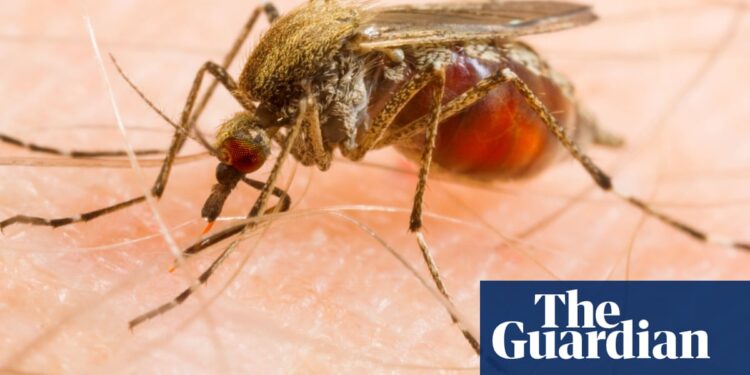A rare but serious – and potentially lethal – mosquito-borne disease has prompted officials to close public parks as well as implement targeted bug spraying in several communities in Massachusetts.
The disease, eastern equine encephalitis, is a virus that generally spreads to humans through the bite of an infected mosquito, according to the US Centers for Disease Control and Prevention (CDC). Also known as EEE, it can affect people of all ages, cause severe illness and possibly lead to death.
About 30% of people who become infected die, according to the CDC, and many survivors have ongoing neurologic problems.
As of Sunday, 13 communities in Massachusetts are designated as being at risk. And in an effort to reduce the general risk of infection, state officials will conduct sprayings this week – both by plane and by truck – of a pesticide that controls mosquitoes in the at-risk areas.
“We have not seen an outbreak of EEE for four years in Massachusetts,” the commissioner of the Massachusetts department of public health, Robbie Goldstein, said on Saturday. “This year’s outbreak and activity raise the risk for communities in parts of the state. We need to use all our available tools to reduce risk and protect our communities.”
Aerial spraying is used where there is a “high risk of human disease”, state officials said. That form of spraying will be taking place this week in towns in Plymouth county – and spraying by truck will occur in areas of southern Worcester county.
This comes as state officials announced last week that a man in his 80s had caught the disease, marking the first human case found in Massachusetts since 2020.
In 2020, five human cases were recorded in Massachusetts and one death, officials said. There were 12 human cases of eastern equine encephalitis in Massachusetts and six deaths in 2019.
“People under age 15 and over age 50 are at particular risk,” the Massachusetts department of public health said. “EEE does not occur every year, but based on current evidence, a high risk of occurrence of human cases exists in 2024.”
The targeted spraying is scheduled to begin on Tuesday evening, Massachusetts officials said. Spraying might take several nights, beginning at dusk and ending at dawn each day.
And while spraying is considered necessary to reduce human risk, officials said that it will not eliminate the risk of infection.
“It is critical that residents protect themselves from mosquito bites by staying indoors during peak mosquito hours, applying insect repellent when outdoors, draining standing water where mosquitoes breed, and repairing screens,” officials said.
According to the Associated Press, the town of Plymouth, about 40 miles (64km) south-east of Boston, announced on Friday that it was closing its public outdoor recreation facilities from dusk until dawn each day after a horse in the town was infected with the disease.
Massachusetts officials have urged residents to avoid outdoor activity when the sun is down.
There are no vaccines to prevent or treat eastern equine encephalitis, and experts say that the best way to prevent your risk of infection is to prevent being bitten. Symptoms can include fever, headache, vomiting, diarrhea and seizures.







